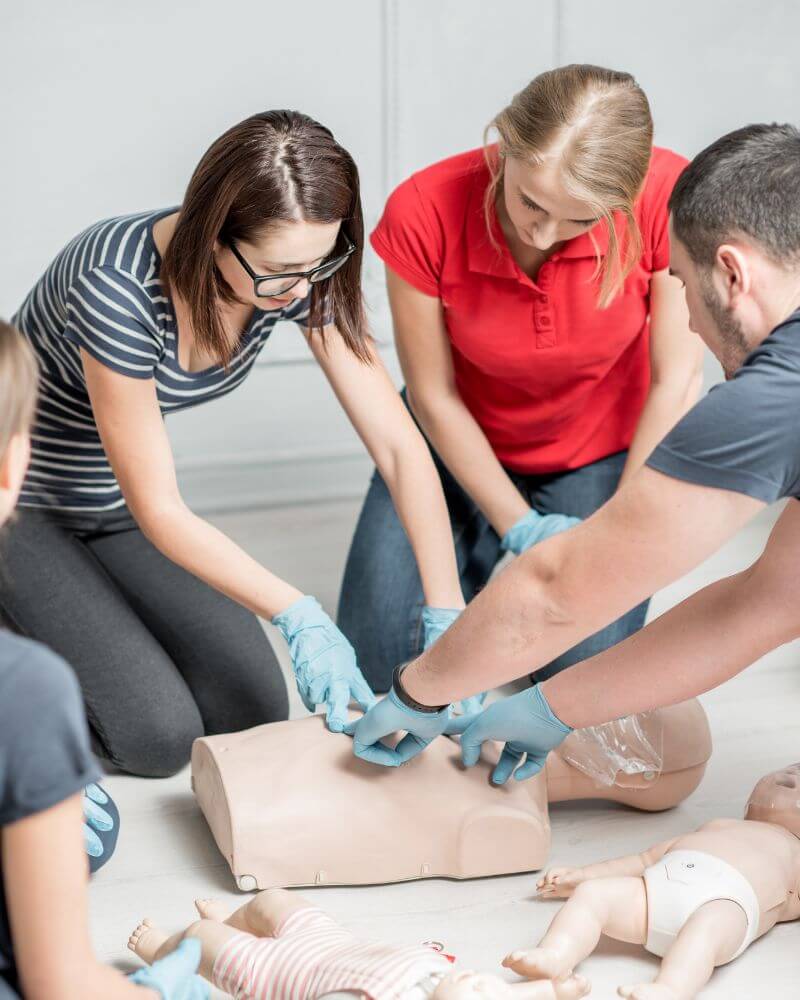Introduction
In today's busy globe, the capability to respond properly in an emergency can make all the difference between life and death. One important ability that everybody should have is Cardiopulmonary Resuscitation (CPR). This post dives deep into The Relevance of CPR Qualification: What You Required to Know, highlighting why getting a CPR accreditation is not simply helpful however important for any person looking to guarantee safety in their community.
The Value of mouth-to-mouth resuscitation Qualification: What You Required to Know
When it involves conserving lives, knowledge is power. CPR is an essential skill that can be discovered via numerous first help courses With heart attack being among the leading reasons of death worldwide, having mouth-to-mouth resuscitation knowledge can substantially boost survival prices. According to the American Heart Association, immediate CPR can double or perhaps triple a sufferer's opportunity of survival.
But just what does CPR entail? It's a combination of chest compressions and rescue breaths developed to maintain blood flow and oxygenation throughout heart emergencies. While lots of people assume CPR is only required for medical care professionals, the truth is that any person can gain from discovering this potentially life-saving skill.
What Does mouth-to-mouth resuscitation Certifcation Entail?
CPR certification commonly involves completing a training course that covers various abilities, consisting of:
- Recognizing cardiac arrest symptoms Performing premium breast compressions Administering rescue breaths Using an Automated External Defibrillator (AED)
These skills are often instructed along with first aid courses, providing a detailed understanding of exactly how to respond in emergencies.

Why You Must Obtain Certified
Life-Saving Skills: The most compelling reason for acquiring your CPR certification is the capacity to save lives. Having these abilities prepares you for emergencies at home, at work, or in public spaces.
Confidence Boost: Recognizing just how to execute mouth-to-mouth resuscitation can improve your self-confidence when confronted with an emergency situation. This guarantee enables you to act emphatically instead of freeze under pressure.
Career Opportunities: Lots of employers look favorably upon candidates with accreditations in first aid and CPR. Area such as health care, education, and sports mentoring commonly call for these credentials.

Community Effect: When much more people are learnt mouth-to-mouth resuscitation, areas become safer places. Think of going to a public event where various people know just how to execute CPR; the chance of efficient treatment enhances exponentially.
Renewal and Continuous Discovering: The majority of accreditations need revival every two years or two, making certain that people remain upgraded on finest techniques and any type of changes in guidelines.

What Are Your Alternatives for Training?
There are many avenues available for acquiring your mouth-to-mouth resuscitation qualification:
Online Courses
Online courses have acquired popularity due to their ease. You can discover at your own rate without geographical constraints.
In-Person Classes
In-person classes offer hands-on experience under expert guidance, which can be very useful when it comes time to apply your skills in real-life situations.
Combination Programs
Some companies provide hybrid programs that combine on-line concept with hands-on technique sessions.
Finding the Right Emergency treatment Course
When picking a training program, consider variables like area, cost, duration, and credibility of First Aid training locations Brisbane the institution providing the program. Search for recognized organizations identified by authorities like the American Heart Association or Red Cross.
How Usually Ought to You Revitalize Your Certification?
Most accreditations recommend renewing every two years. Constant practice makes sure abilities remain sharp and up-to-date with existing guidelines.
Frequently Asked Questions (FAQs)
1. What Is Consisted of in an Emergency Treatment Course?
A regular emergency treatment course covers abilities such as injury treatment, choking alleviation methods, fundamental life support (BLS), and just how to use an AED alongside CPR training.
2. How Long Does It Take To Get Certified?
Most training courses last in between 4-8 hours for preliminary certification and may take less time for renewal programs because of previous knowledge.
3. Is Online Qualification Valid?
Yes! As long as the course is approved by identified bodies like AHA or Red Cross.
4. Can I Use My First Aid Certificate Internationally?
It depends upon the country's policies; however, lots of places identify certifications from well-established companies worldwide.
5. Are There Age Constraints for Taking a Course?
Generally no; individuals as young as 12 can take most first aid programs with adult consent.
6. Do Companies Deal Group Discount Rates for Training?
Many companies do supply discount rates for group bookings which makes it less complicated for companies wishing to train several workers simultaneously.
Conclusion
Learning CPR is not merely an alternative; it's an obligation we owe ourselves and our areas. The importance of being prepared can not be overemphasized-- having your qualification outfits you with life-saving skills that could make all the distinction throughout emergencies. By enrolling in a reputable emergency treatment course that consists of thorough training on both first aid methods and mouth-to-mouth resuscitation procedures, you're taking proactive steps towards coming to be a useful asset in crisis situations.
As we've discovered throughout this post entitled "The Significance of CPR Certification: What You Need to Know," it's clear that possessing these abilities boosts not just personal self-confidence but additionally neighborhood security in general-- developing a causal sequence where preparedness becomes force of habit among all of us! So why wait? Register today!